8 Best Foods to Fight the Flu
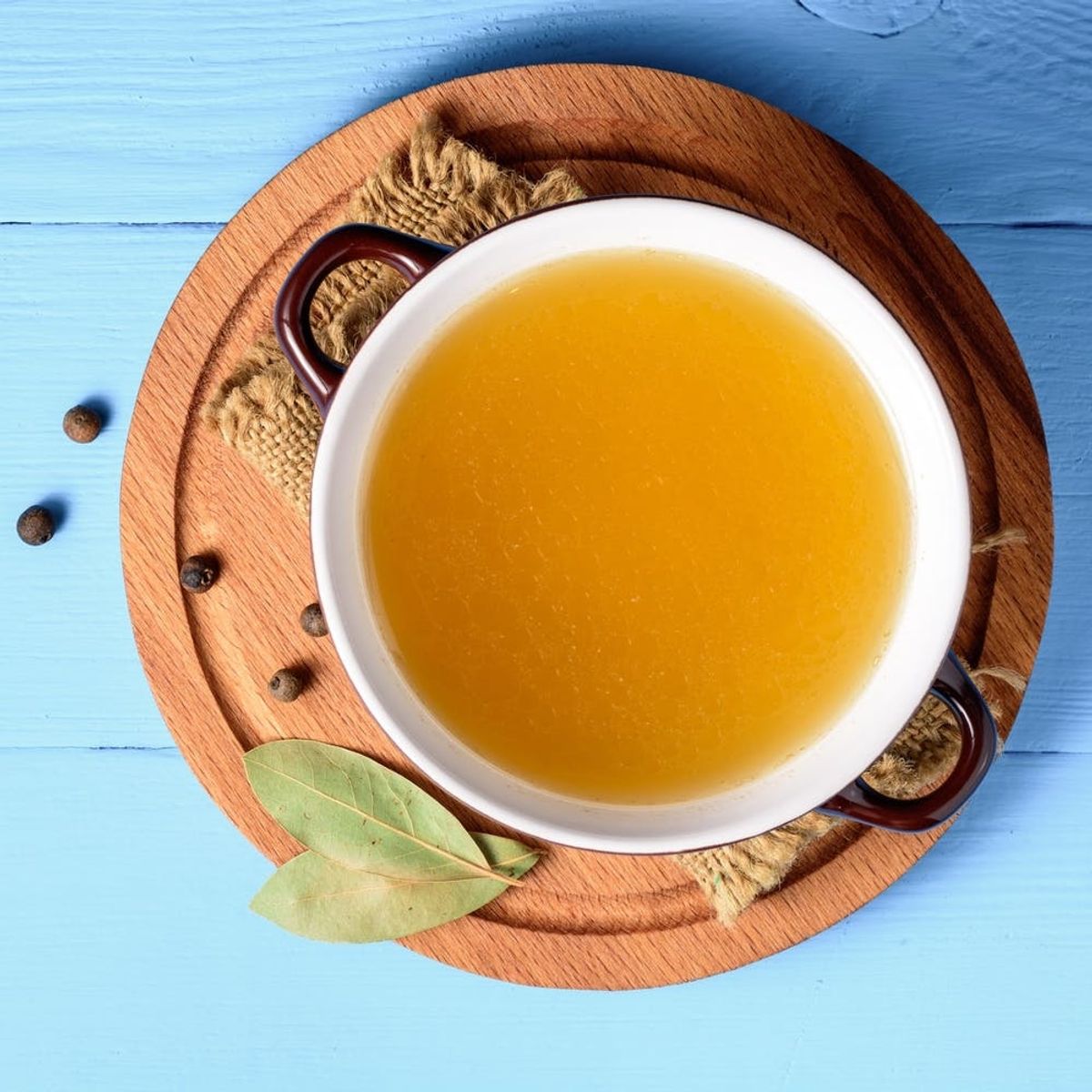
Public health experts are saying that this year’s flu strain is not only extremely aggressive, but it’s also likely to continue to spread for weeks to come. In terms of the number of cases, hospitalizations, and deaths, the 2017-2018 flu season appears to be the worst in almost a decade. And as of the end of January, the latest data indicated that it hadn’t even reached its peak.
If the dreaded virus has hit your home, you may be wondering how to shorten its duration. (Or if it hasn’t, perhaps you’re crossing your fingers in the hopes you’ll continue to avoid the nasty business altogether.) Donning a medical mask or Lysol wiping the heck out of every surface in your home may seem like a logical place to start, but there’s another strategy you may want to consider as well: your diet.
There’s more to diet-for-flu than an apple a day keeping the doctor away. Registered dietitian Aubrey Uhling of Uhling Consulting explains: “Certain foods can provide vital components to our immune system, including reducing the likelihood of getting sick and increasing the speed of recovery.” Mounting scientific evidence backs the immune-boosting efficacy of several individual foods.
Here’s a look at which ones to choose if you’re suffering with what’s going around — or doing your best to dodge it.
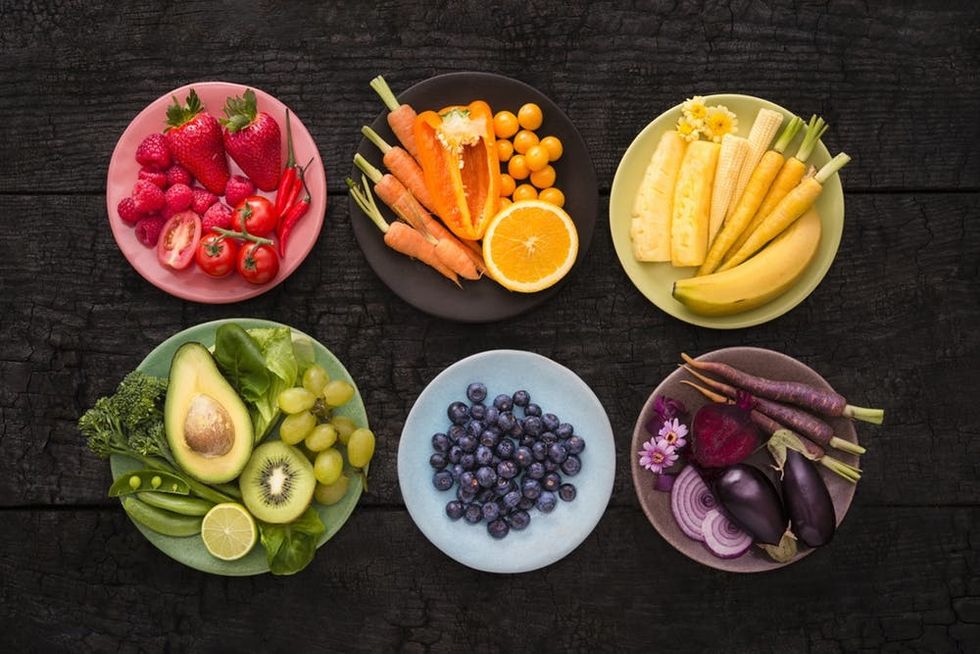
1. Fruits and Vegetables: Back to the apple a day proverb for a moment. You already know a diet rich in fruits and vegetables is an excellent approach for healthy living in general, but it may also offer specific benefits for resisting illness. “Fruits and vegetables contain a variety of different vitamins and minerals,” says Uhling. “By consuming colorful fruits and vegetables, you can reduce the likelihood of becoming deficient in micronutrients. Deficiencies in certain vitamins and minerals can contribute to a weaker immune system and slow your recovery.” Reach for strawberries and citrus for vitamin C, carrots and sweet potatoes for vitamin A, spinach and broccoli for vitamin E. And don’t forget minerals! Add green beans or asparagus to your plate for a dose of zinc, or cabbage for folic acid.
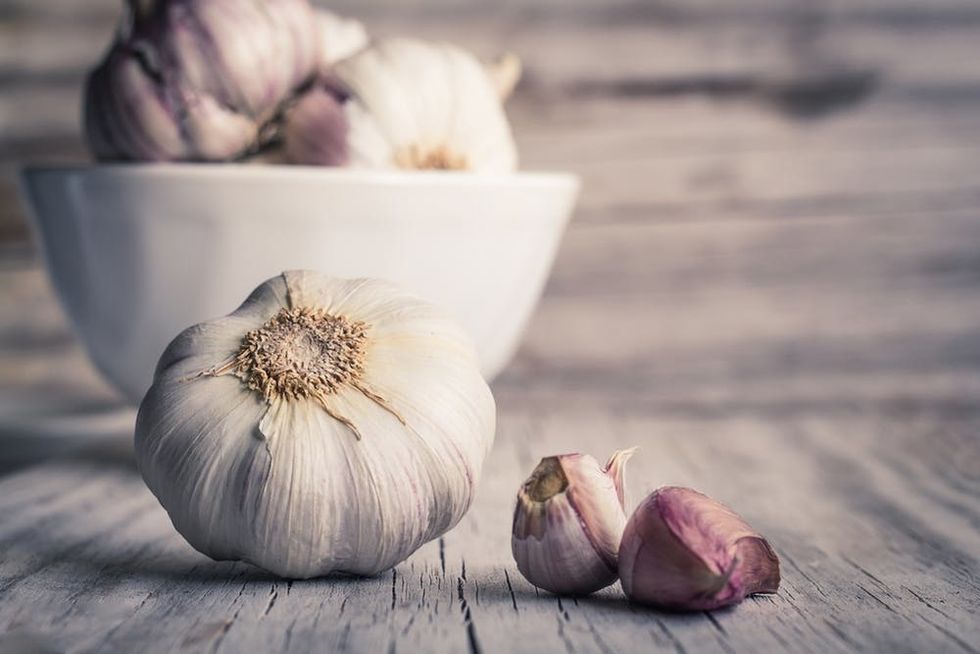
2. Garlic: Has your crunchy granola friend told you to chew fresh garlic cloves when flu season starts? Turns out she’s onto something. Compounds in garlic have been shown to reduce the severity of colds and flu. If popping whole cloves like candy isn’t your thing, incorporate some into pasta or finish off a pizza with a sprinkle of minced garlic.
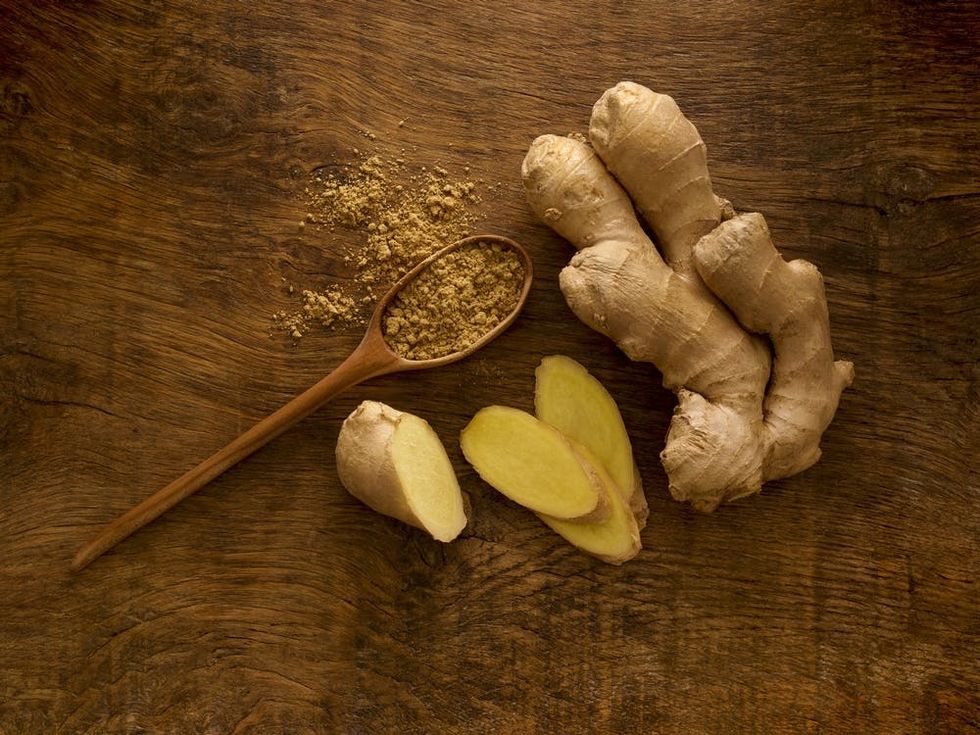
3. Ginger: Ah, ginger: the flavorful backbone of Asian foods and delightful undertone of Christmas cookies. Even when we don’t feel like eating, ginger has an important gift to offer. Worldwide, it’s used as an edible defense against nausea. Depending on how flu rears its ugly head in your body, this may be just the benefit you need. If nausea isn’t an issue, however, ginger also decreases inflammation, providing powerful relief for other flu symptoms like body aches or a swollen nose.
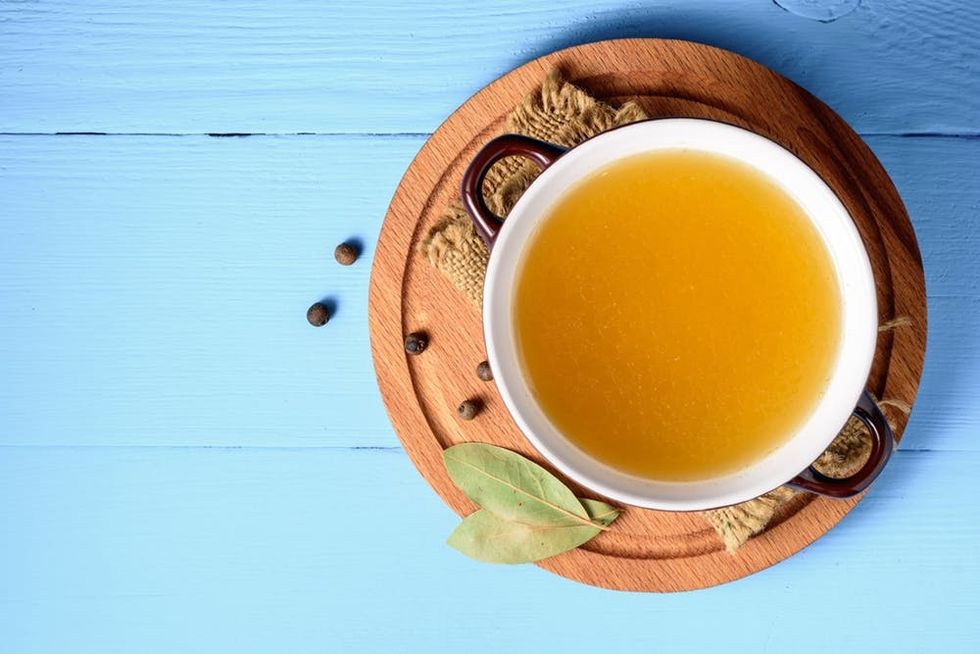
3. Broth-Based Soups: It’s time to revisit the time-honored tradition of chicken noodle soup when you’re sick. One study showed that when neutrophils (one of the body’s defense cells that actually cause inflammation) were exposed to chicken broth, their movement slowed. The implication? The broth may have slowed the inflammatory process. The healing touch of hot liquid on a sore throat doesn’t hurt, either.
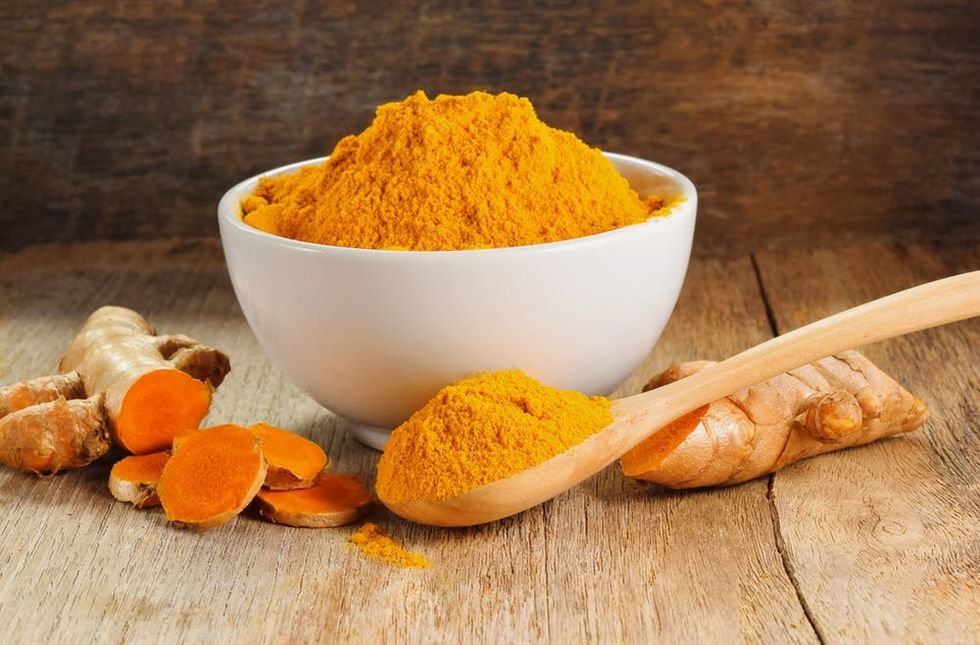
4. Turmeric: Is there anything turmeric doesn’t do? Many consumers have begun taking this spice in pill form for autoimmune conditions due to its anti-inflammatory properties. In addition to reducing inflammation, curcumin (the active compound in turmeric) has been shown to increase a peptide that helps the immune system fight bacteria, viruses, and fungi. Try turmeric in an Indian curry dish, or sneak some into a smoothie.
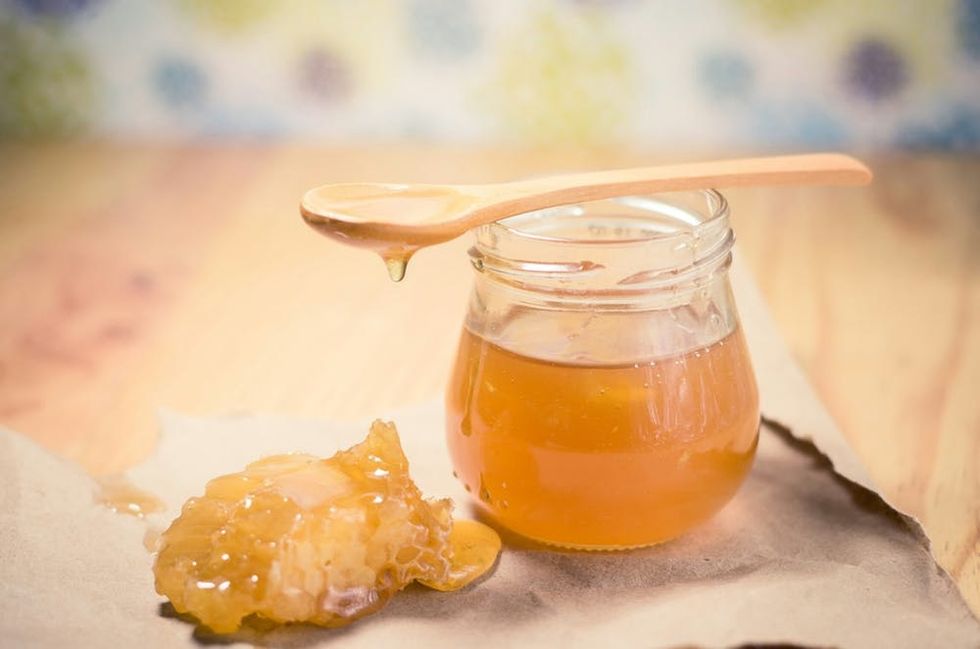
5. Honey: Though you may have heard honey touted as a cure-all for everything from diabetes to allergies, its primary proven medicinal use against flu symptoms is as a cough suppressant. In one study, honey actually beat an over-the-counter cough medicine at reducing coughing. Add some to a cup of hot tea for the double whammy of throat-soothing warmth and cough suppression.

6. Water: If you’re running a fever, you’re much more likely to become dehydrated. Keep a pitcher of water at your bedside as a preventative measure. (Plus, the more water you drink, the less opportunity you give yourself to load up on less healthy options like soda or juice.)
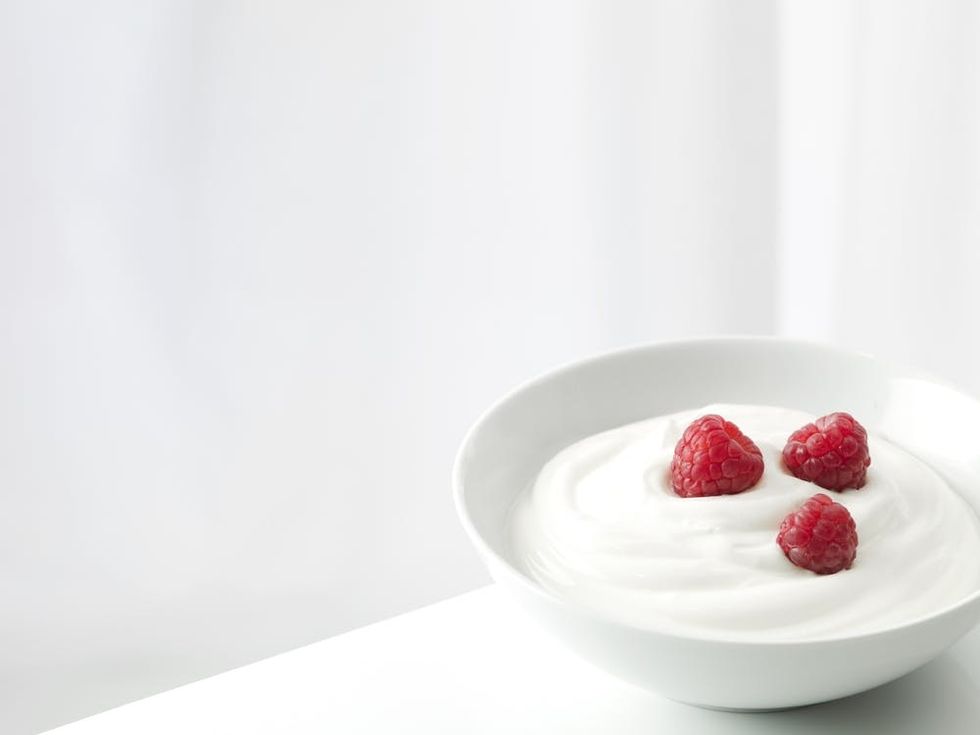
8. Yogurt and Other Fermented Foods: “Another important defense mechanism is the “good bacteria” that lives in our gut,” says Uhling. “Incorporating fermented foods into the diet can help fight off disease-causing bacteria and positively impact the body’s immune response.” These helpful gut bugs can be found in yogurt and other foods like kimchi, sauerkraut, miso, and tempeh. When choosing yogurt, just be mindful not to go with the thinly disguised-dessert variety. Excess sugar can promote the growth of pathogenic bacteria in the gut, to the point of harming your immunity.
What’s your favorite way to use food as medicine? Tweet us at @BritandCo!
(Photos via Getty)


















